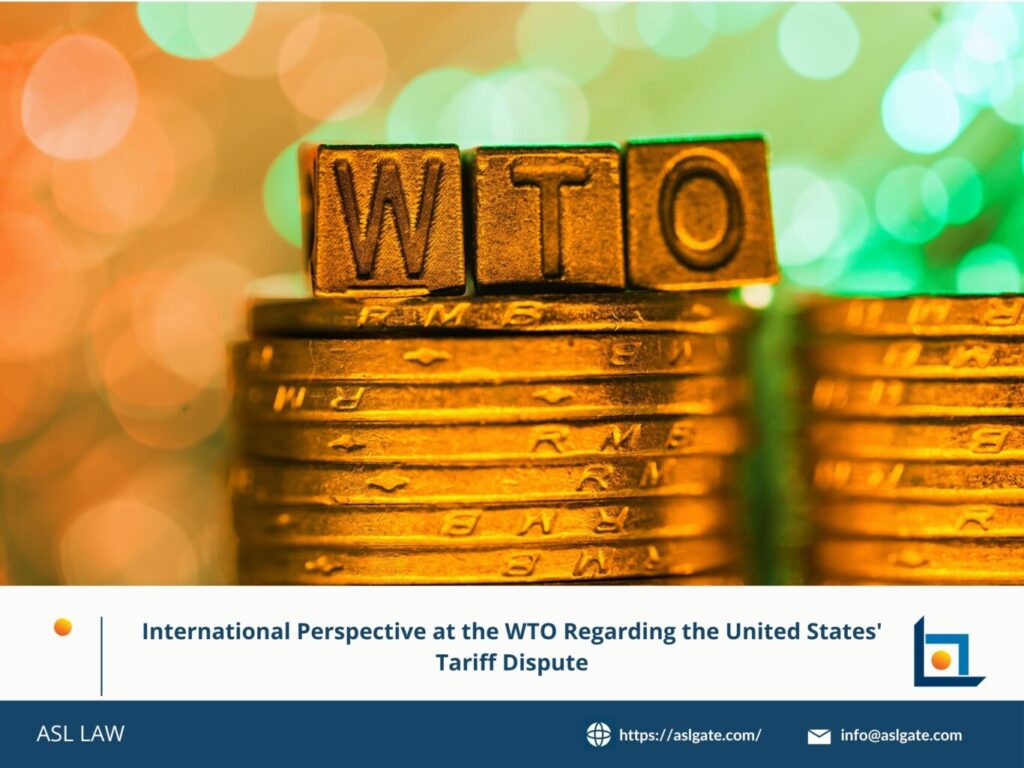Since March 2018, under President Donald Trump, the United States has imposed additional tariffs of 25% on steel and 10% on aluminum imports pursuant to Section 232 of the Trade Expansion Act of 1962, citing national security concerns. These measures were expanded over multiple phases and continued to be adjusted during Trump’s second term.
Notably, in 2025, the United States further escalated its tariff policy:
- March 12, 2025: Raised tariffs on steel and aluminum imports to 25%.
- April 3 & May 3, 2025: Imposed a 25% tariff on automobiles and auto parts.
- April 2, 2025: Announced countervailing duties at 10%, with certain products subject to higher rates, while others were exempted.
- April 10 to May 12, 2025: The U.S. and China continuously imposed and adjusted retaliatory tariffs on each other’s goods, with tariff rates reaching as high as 145% at times.
Retaliation Proposals at the WTO
Several WTO members—including the EU, India, Japan, and the United Kingdom—have proposed additional duties on U.S. goods, framing these as retaliatory actions against U.S. tariff measures that they consider “safeguards” inconsistent with WTO rules.
Legal Basis Under the WTO Safeguards Agreement
The Safeguards Agreement provides that WTO members may consult and seek compensation if they are adversely affected by a safeguard measure that is not based on unfair trade practices. If consultations fail within 30 days, the affected member may implement retaliatory measures within 90 days of the safeguard being applied.
Divergent Views at the WTO Committee on Safeguards
During the WTO Committee meeting on April 28, 2025, members such as the EU, India, China, and the UK asserted that the U.S. tariffs were safeguard measures. However, the U.S. rejected this view, claiming instead that the measures were legitimate national security actions under Article XXI of the GATT 1994, and therefore not subject to the Safeguards Agreement.
Retaliation Notifications by WTO Members
- India: Announced additional tariffs on U.S. products in response to policies affecting USD 7.6 billion in exports. While it has not specified product details, India reserved the right to retaliate 30 days after its notification.
- Japan: Reiterated its position from 2018, asserting that U.S. import duties qualify as safeguard measures. Japan stated it would calculate and later disclose the specifics of its retaliatory response.
- United Kingdom: Identified the 25% additional tariffs imposed on March 12, 2025, as a new safeguard measure. The UK indicated two possible timelines for retaliation: from June 9, 2025 (30 days post-notification), or from 2028 should the WTO issue an adverse ruling against the U.S. The UK estimates that U.S. measures affect approximately £0.6 billion in UK exports.
- European Union: Requested consultations not only on steel and aluminum tariffs but also on other products like cars, beer, and aluminum cans, imposed under Section 232 and the International Emergency Economic Powers Act (IEEPA). The U.S. continues to assert that these are lawful national security actions, not safeguards.
Outlook and Assessment
These developments reflect a fundamental disagreement between the United States and other WTO members on the classification and treatment of the U.S. tariffs. While affected members believe they have the right to retaliate under the Safeguards Agreement, the United States maintains that its actions fall under the national security exception.
Although current retaliation proposals remain procedural and have not yet resulted in concrete countermeasures, the risk of an escalating trade conflict remains if consensus cannot be reached in future consultations.
To protect their legitimate interests, manufacturers and exporters should familiarize themselves with the procedure and actively contact Vietnamese law firms specializing in anti-dumping and trade remedy for timely assistance.
ASL Law is a leading full-service and independent Vietnamese law firm made up of experienced and talented lawyers. ASL Law is ranked as the top tier Law Firm in Vietnam by Legal500, Asia Law, WTR, and Asia Business Law Journal. Based in both Hanoi and Ho Chi Minh City in Vietnam, the firm’s main purpose is to provide the most practical, efficient and lawful advice to its domestic and international clients. If we can be of assistance, please email to [email protected].
ASL LAW is the top-tier Vietnam law firm for Anti-dumping & countervailing. If you need any advice, please contact us for further information or collaboration.

 Tiếng Việt
Tiếng Việt 中文 (中国)
中文 (中国) 日本語
日本語

